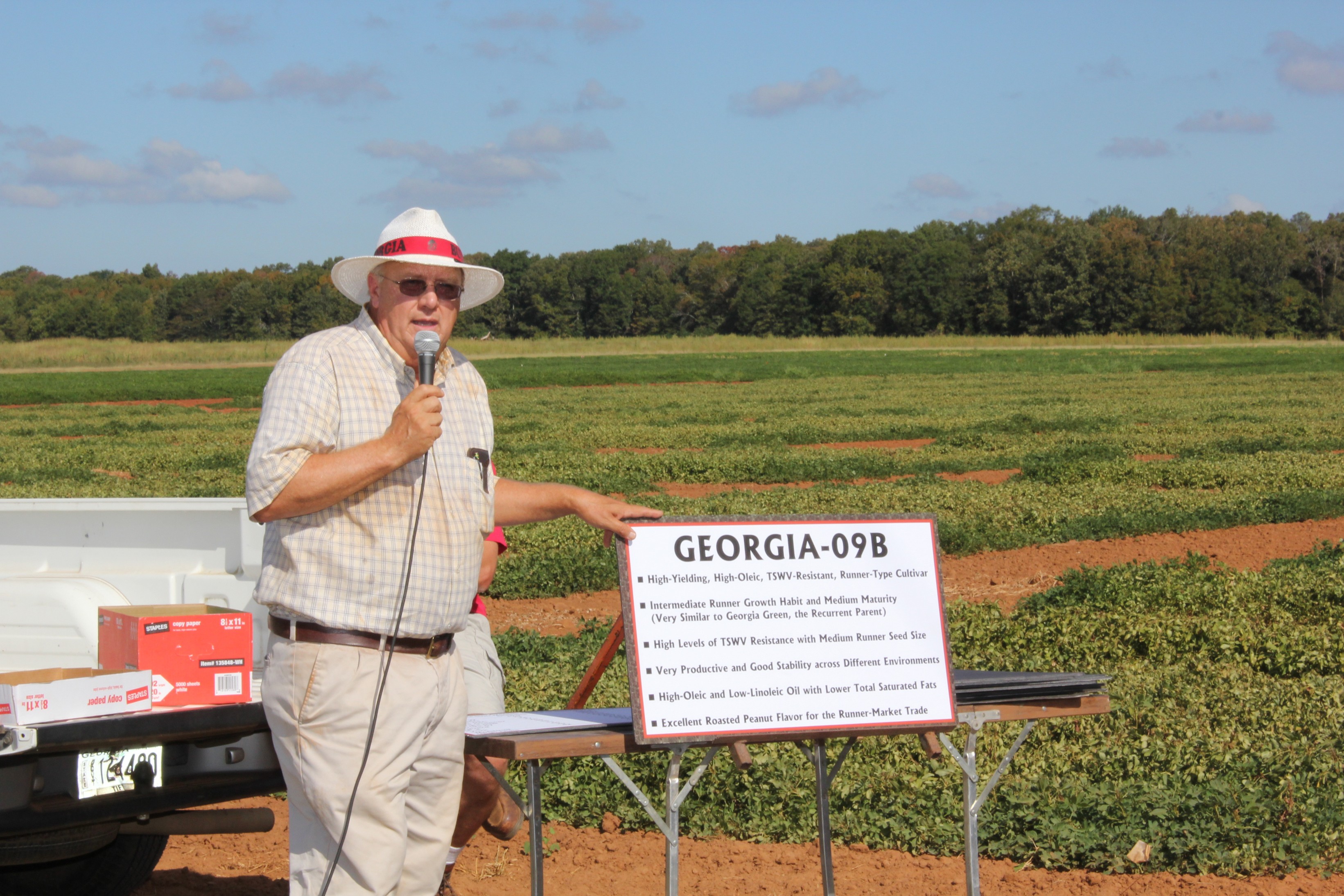
Bill Branch, University of Georgia peanut breeder, discusses information on new peanut varieties available for growers.
Bill Branch, University of Georgia peanut breeder, updated attendees on the Georgia Peanut Tour about peanut breeding and research on peanut varieties. The Georgia Peanut Breeding Program is actively involved in the development of improved varieties with desirable traits for increasing dollar value, yield, grade, disease resistance, insect resistance, virus resistance, nematode resistance, aflatoxin resistance, drought tolerance, better shelling characteristics, longer shelf-life, and enhanced flavor and nutritional qualities. Branch discussed how it can take scientists up to 10 years to fully develop a new variety. In the last several years the Georgia Peanut Breeding Program has released runner-type varieties such as Georgia-06G, Georgia Greener, Georgia-07W, and the most recent Georgia-09B. Georgia-09B is a high-yielding, high-oleic, tomato spotted wilt virus (TSWV)-resistant, medium-seeded, runner-type peanut variety that was released in 2009. Georgia-09B originated from the first backcross made with Georgia Green. Georgia-09B combines the excellent roasted flavor of Georgia Green with the high-oleic trait for longer shelf-life and improved oil quality of peanut and peanut products. This variety and all others mentioned were developed at the University of Georgia, Coastal Plain Experiment Station in Tifton, Ga.
